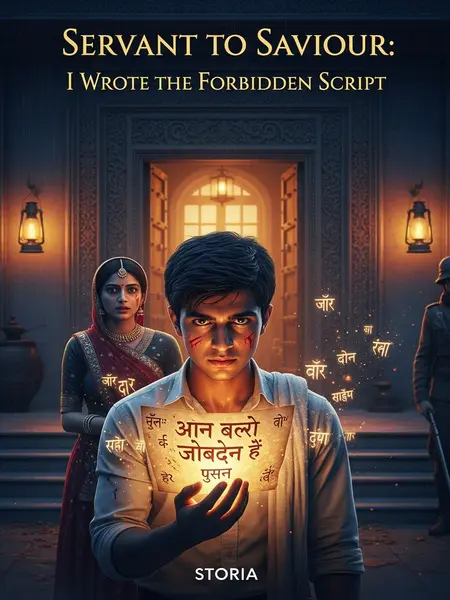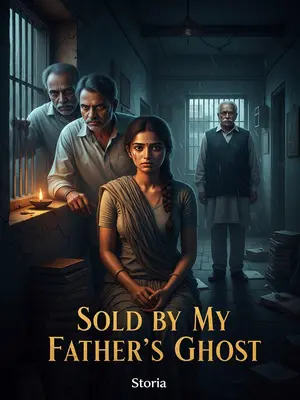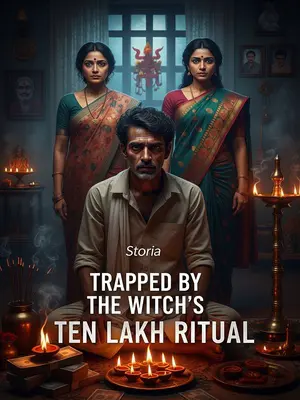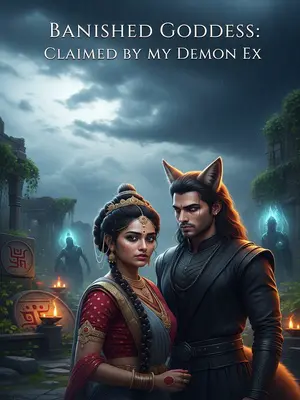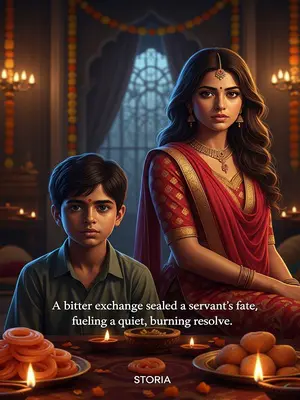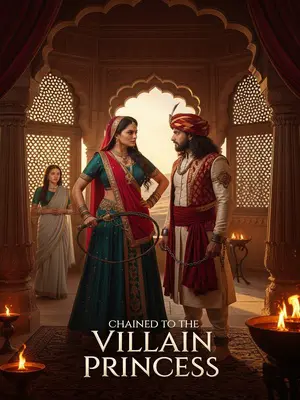Chapter 1: Under the Banyan Tree
My name is Arjun Mehra, and I accidentally transmigrated to the Divine Script Continent.
Ajeeb kismet, yaar. One second I was dozing off after a boring online exam, the next I woke up sprawled beneath a sprawling banyan tree, the roots pressing into my back. Panic surged through me—the earthy scent of wet soil mixed with the sharp tang of fallen leaves, and somewhere in the distance, temple bells chimed, their echoes unfamiliar yet oddly comforting. Above me, the sky burned a different shade of blue, vast and unknown. My heart hammered as I realized nothing around me was familiar, and I was utterly alone.
It’s said that this world has a unique cultivation system, but for ordinary people like me, there’s little hope of seeing it up close.
When I first arrived, I suffered a lot because I couldn't speak the local language.
Those early days, I could barely ask for water. Once, I tried to ask a chaiwala for 'jal' but instead blurted out 'jalebi'—the man burst out laughing, and a group of women nearby shook their heads with pity. The shopkeepers at the bazaar would shoo me away, thinking I was some mad videshi. Even the stray dogs eyed me as if I were a goat at Bakrid. My stomach would growl louder than the cycle bell outside, but I just had to make do with whatever scraps I found.
The eldest daughter of the Colonel's Bungalow saw how pitiful I was and brought me back, giving me a job.
I still remember that afternoon—the sun beat down on me like a police interrogation lamp. I was crouched near the back gate, dust clinging to my sweaty skin, when she appeared. She paused, hesitating as she glanced over her shoulder to check if Chachi ji or Kabir were watching. Carefully, she set down a battered steel tiffin beside me—inside, two soft rotis and a little sabzi, still warm. Only then did she call out softly, "Bhaiya, are you hungry?" That was the first true kindness I’d received in this world.
Her name is Meera Singh. She's kindhearted, but unfortunately, in this world, women are forbidden from cultivating.
It’s strange, isn’t it? In our Bharat, our mothers and sisters do pooja, write mantras, but here, Meera Didi can’t even touch the divine script. Her eyes would light up whenever she saw the calligraphy books, but then she’d quietly tuck them away under her pillow, as if even wishing was a crime.
After the old colonel died in battle, the authority of the Singh family fell into the hands of her Chachi ji and her cousin.
Once, the house echoed with laughter and evening ragas on the radio, but now, Chachi ji’s shrill orders and Kabir’s swagger fill every corner. Meera Didi just busies herself with chores, rarely speaking up unless forced.
On this day—
I was sweeping the floor when a young man came running in, flashing his paan-stained teeth, swaggering like he owned the whole mohalla.
I could smell the cheap aftershave before I even saw Kabir Singh swagger in. He looked as if he’d just scored a century at the local cricket match, all bravado and self-importance.
"Didi, congratulations on your upcoming marriage."
This is Kabir Singh, the son of Chachi ji.
Meera frowned. "Marriage?"
Kabir and his mother had always wanted to drive her out of the Singh family bungalow. For women in olden times, marriage was the simplest and most effective way to get rid of them.
The way he said it, you’d think she’d won a lottery ticket, but his eyes were full of mischief. He and his mother, always plotting, always whispering behind closed doors. For a girl like Meera Didi, marriage wasn’t celebration—it was exile.
Meera didn't want to leave, so she had refused countless suitors.
Somehow, every time a matchmaker arrived, Meera Didi would find some fault—one was too old, another too drunk, another didn’t know how to read. Still, Kabir and Chachi ji never gave up.
Kabir smiled and folded his hands. "My mother has promised you to Raja Saheb as a second wife. Raja Saheb will soon send someone to fetch you. Tonight is the wedding night. From then on, you'll be Rani Saheb."
Kabir said it like it was an honour, as if being sent to Raja Saheb was a gift. But in our village, everyone knows Raja Saheb’s reputation—women disappear behind his high walls, their laughter silenced forever.
Meera was stunned, then snapped, "Raja Saheb is notorious for his debauchery. Who knows how many good women he's ruined? I'd rather marry anyone than him!"
Her face turned red with anger. Even the bangles on her wrists seemed to tremble. I saw her grip the end of her dupatta tightly, knuckles white. As she spoke, her voice caught for a split second, but she swallowed her fear, straightened her back, and met Kabir’s gaze—her defiance costing her dearly.
Kabir replied as if it were the most natural thing in the world, "Aren't those women all gone already? They won't fight you for favour. Raja Saheb said you'll always be his Rani."
He shrugged, as if he was discussing the price of onions in the mandi. The casual cruelty in his tone made my skin crawl.
"Huh!"
Meera spat. "He married eighteen wives. Didn't he say the same thing to every single one?"
A sharp, defiant look flashed in her eyes. She refused to be cowed, even when the odds were stacked against her. Such stubbornness—pure Meera Didi.
Kabir's face darkened. "Usually, it doesn't matter if you refuse. But this time, Raja Saheb himself wants to marry you. You can't be so stubborn."
You could feel the room temperature drop. His words were a threat wrapped in false concern. I wanted to step forward, but my broom felt like a useless stick.
Meera said firmly, "I'd rather die than agree!"
The steel in her voice left no room for doubt. Meera Didi was not someone to break so easily.
Kabir's expression turned cold. "If you refuse the sweet, you'll be forced to swallow the bitter!"
The venom in his tone was enough to send a chill down my spine. Even the help in the corridor stopped what they were doing, trying not to be noticed.
As he spoke, he took out a calligraphy pen.
He twirled it between his fingers, as if it were some ceremonial dagger. The pen glinted ominously in the light, and I realized this was no ordinary ink. Kabir flicked the pen, and a single drop of ink splattered onto the white marble floor, leaving a dark stain—a bad omen, as if the room itself was warning us.
